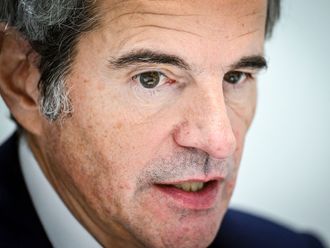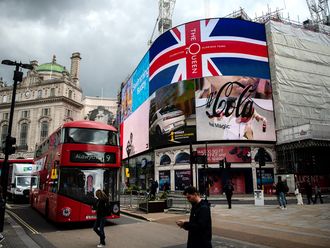Occupied Jerusalem: Prime Minister Benjamin Netanyahu's six-party, centre-right coalition is divided as Israel heads into indirect peace talks with the Palestinians, a cabinet minister said on Sunday.
"I can't say the coalition is united. That would be a lie if I told you that," said Trade and Industry Minister Binyamin Ben-Eliezer of the Labour Party — the only left-wing group in the government and an advocate of conceding land for peace.
US President Barack Obama's envoy George Mitchell, who is mediating in the "proximity talks", is to resume meetings today, in the first substantive sessions since the Palestinians agreed to the indirect negotiations, which have been given a maximum of four months to produce results.
Ben-Eliezer did not give a rundown of where the six Israeli coalition partners stand on the peace process, but he said the sceptical views of Foreign Minister Avigdor Lieberman, a hawk who leads the rightwing Israel My Home party, were known.
Netanyahu also does not have the wholesale support of his own rightist Likud bloc, the largest in the coalition, according to Ben-Eliezer.
"A majority back the prime minister, but not 100 per cent," he told reporters at an informal briefing. Netanyahu had the strong support of younger Likud members, he added.
Under pressure
The Israeli leader is also under pressure from Obama, who says solving the conflict is a "vital security interest" of the United States as it battles anti-Western militancy.
Unconfirmed Israeli media reports at the weekend said Washington had signalled to Netanyahu that his coalition might sound as defiant as it liked for internal political purposes, provided its actions only advance the peace process.
Netanyahu formed the coalition just over 13 months ago after the outgoing centre-right Kadima party led by then-Foreign Minister Tzipi Livni failed to secure a parliamentary majority to carry on in office.
Direct peace talks between that government and the Palestinian National Authority of Mahmoud Abbas were showing few outward signs of progress and were suspended in late 2008.
Outright agreement: Palestinians divided
Palestinians are deeply and openly divided about peace with Israel. The Hamas movement controlling the Gaza Strip, rejects outright a peace agreement that would recognise the Jewish state. The Palestinian National Authority of President Mahmoud Abbas, which holds sway in the occupied West Bank, agreed under strong US pressure to resume talks, without obtaining the formal Israeli pledge to totally freeze colonies that it had insisted on. But Trade and Industry Minister Binyamin Ben-Eliezer stressed that "everything is on the table" as talks restart after a long hiatus, including Israeli colonies and the future status of occupied Jerusalem.
— Reuters












